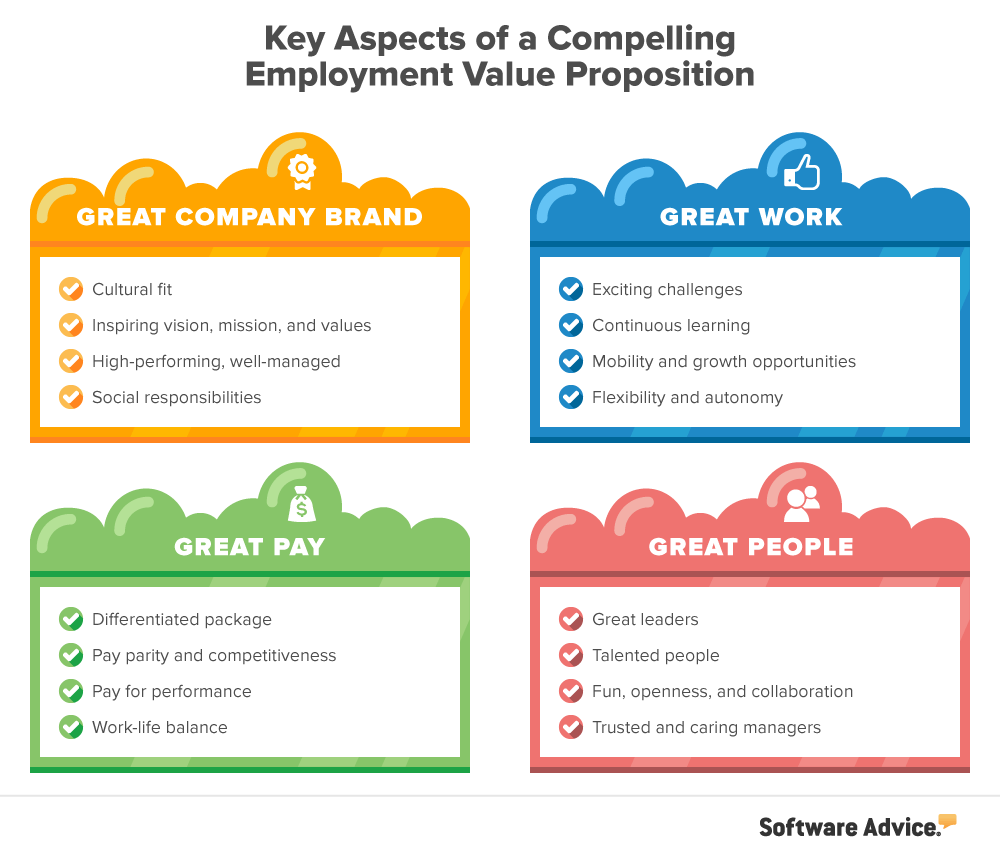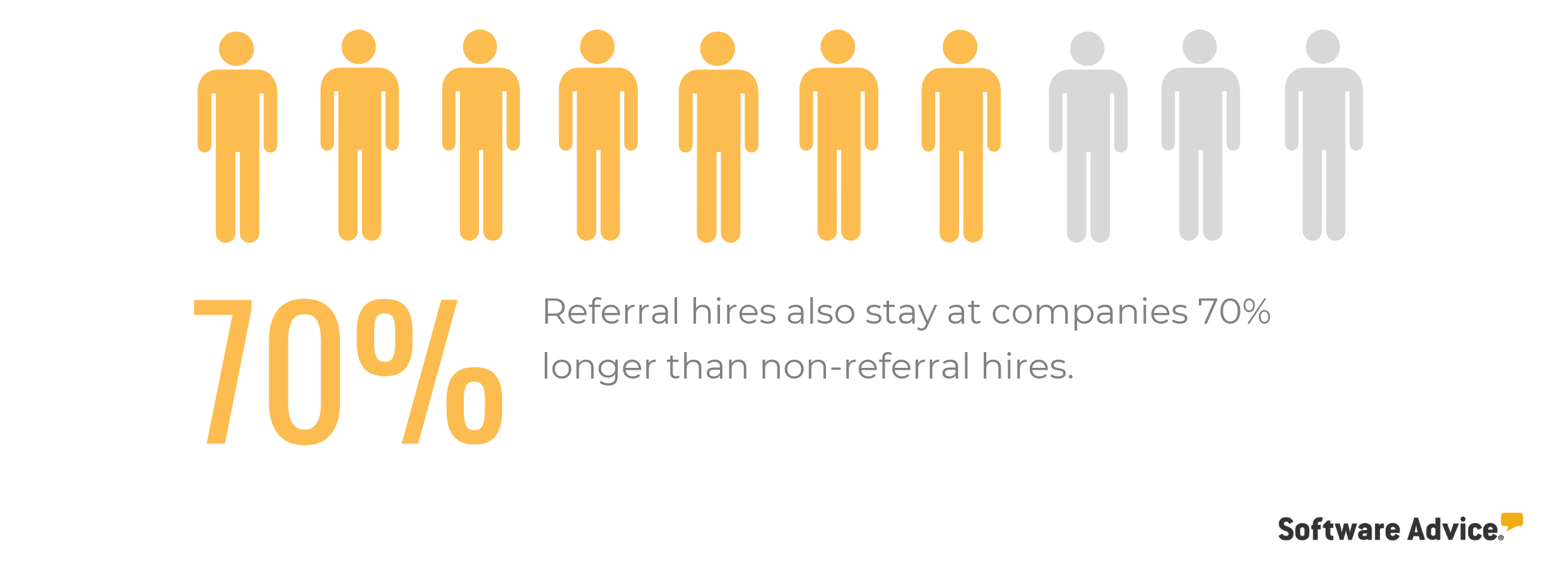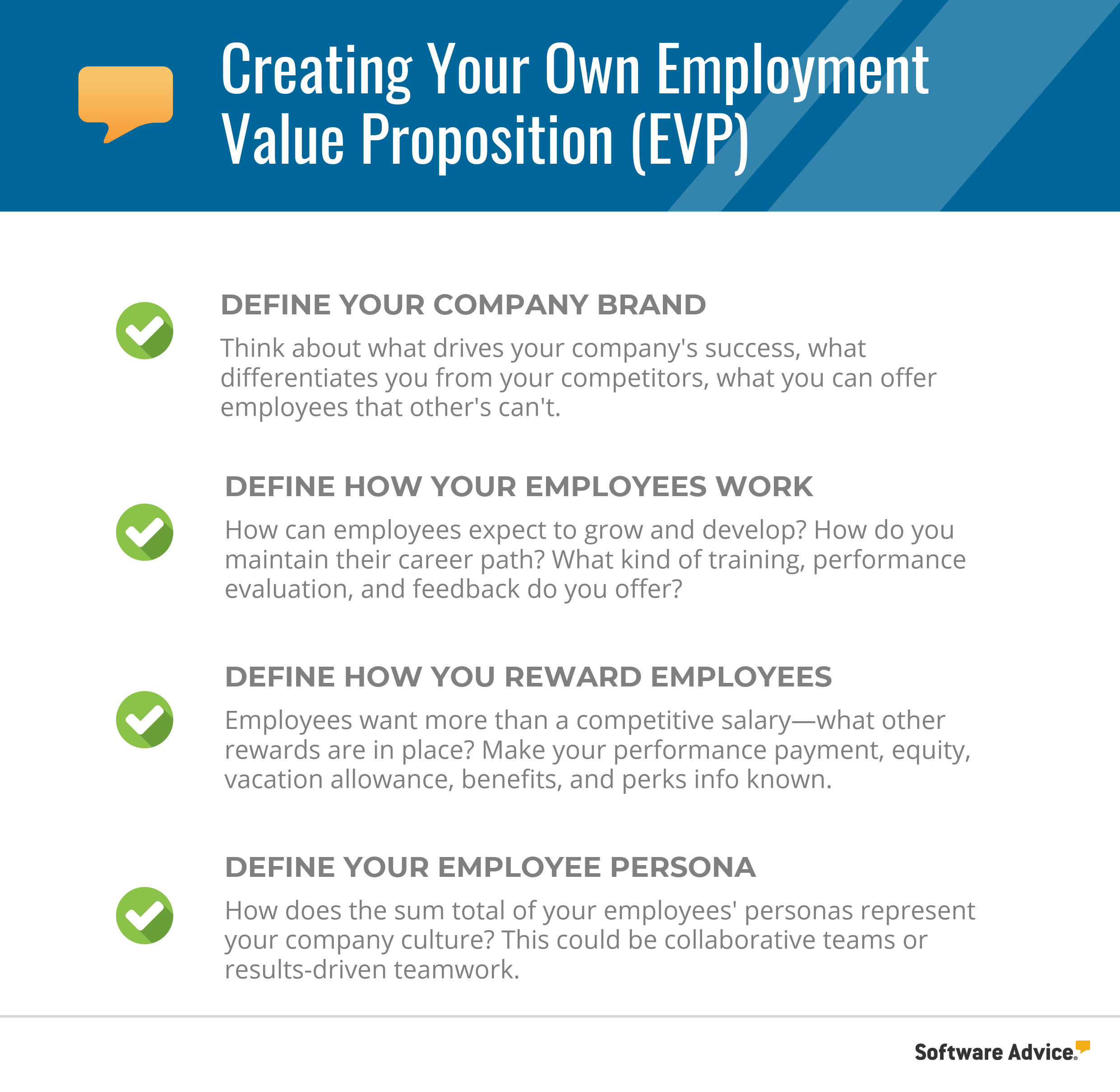Increase Employee Referrals With a Compelling Employment Value Proposition
There’s a reason recruiters and hiring managers love candidates that are recommended by existing employees: They’re cheaper, faster, and easier to hire. Referral hires also stay at companies 70% longer than non-referral hires.
Seventy-one percent of companies have formal employee referral programs, but only 2% of those companies say they’re hitting their referral hiring goals. That’s a huge problem for companies in need of qualified and retainable candidates during a significant talent shortage.
 There’s a general consensus that referral bonuses motivate existing employees to refer talent, but for small businesses with small budgets, it’s not feasible to rely on financial incentives alone. In addition, employers need to define and create a unique employment value proposition (EVP) which encourages existing employees to make referrals.
There’s a general consensus that referral bonuses motivate existing employees to refer talent, but for small businesses with small budgets, it’s not feasible to rely on financial incentives alone. In addition, employers need to define and create a unique employment value proposition (EVP) which encourages existing employees to make referrals.
Unless you have a strong employment value proposition, you’ll continue to struggle with encouraging your employees to refer top talent. In this piece, we’ll go through what an EVP is and how to use one to increase employee referrals.
What is an employment value proposition?
An EVP is something that a company offers to existing employees, detailing how and what exactly they gain by working for that company—which includes compensation, culture, development opportunities and more.
An EVP goes further by being a defining statement or “mission statement” of how a company benefits its employees. Gartner breaks down the key aspects of a compelling EVP into four categories (full content available to clients):

How having a strong employment value proposition can increase employee referrals
Candidates are increasingly focused more on how a company can benefit them in more ways than an attractive salary. Additionally, they’re also willing to accept lower salaries in return for other employee perks.
This is where your EVP comes in, especially as a small business who has to do more to be able to compete with larger competitors with more resources. The more solid and embedded your EVP is within your existing employees, the more likely you are to increase employee referrals.

Candidates hired through employee referrals are highly likely to be more retainable (Source)
Let’s look at it this way: if your pipeline is full of candidates that have been referred by existing employees, it indicates that your employees are happy with recommending your company to others. Unhappy employees are unlikely to recommend their company to their peers. A sparse pipeline is a sign that maybe your employees don’t feel connected to your EVP, and feel unable to or discouraged from making employee referrals.
More importantly, by ensuring that you actually fulfill your EVP to your current employees, you’ll create even more company ambassadors that will actively want to make candidate referrals.
Creating your own EVP
So, how do you define and design your own EVP? Let’s start by taking a look at a great example from HubSpot.
“We’re dedicated to building an inclusive culture where employees can do their best work. Feedback, research, and our own employees show that the number one way to do that is by being flexible. Giving HubSpotters the freedom and flexibility to create their own work-life balance builds trust in our company, but it’s also just the right thing to do. That’s why flexibility is at the core of our benefits and culture, from family planning to financial planning.” (Source)
HubSpot hits all of the key components that Gartner says make a great EVP. In four short sentences, they’ve managed to define their company brand, how they work, how they pay, and the type of people they employ.
Follow the steps below to start creating your unique EVP:
1.Define your company brand
Thinking about the following questions will help you define your company brand:
What drives your company’s success and performance?
What makes your company more attractive to work for than your competitors?
Why is your company a great place to work at?
What can you offer employees that other companies can’t?
For further insight, you can also ask your current employees the above questions—what made them accept your job offer over another?
2. Define how your employees work
This is about much more than how your employees work day to day. Defining how your employees can grow and develop within your company and how you maintain their career paths is extremely important to candidates, including training and education initiatives, performance evaluation, and feedback.
3. Define how you reward employees
It’s important for candidates to know about more than just a salary when thinking about financial rewards from a potential employer. Not only do candidates want competitive salaries, they want to know about other reward aspects such as performance payments, equity, vacation allowance, benefits, and perks.
4. Define your employee persona
Employee personas will be different for each role, but the sum total of these personas should all have something in common that represents your company’s culture. This could be anything from highly collaborative teams and individuals to results-driven teamwork.
How can you increase employee referrals? Fulfill your employment value proposition
No matter how much effort you put behind marketing your employee referral program, unless your employees have a solid reasoning for wanting to refer their peers to your company, your referral program won’t see high levels of engagement. Use this checklist to make sure you’re hitting each key component.

Once you’ve defined your EVP, you’ll need software to help your employees make referrals. Many applicant tracking systems (ATS) can integrate with HR software tools that employees use regularly, which can enable them to share opportunities with their networks.
If you don’t have an ATS or a robust HR system yet, call us at (844) 675-2849 for a free consultation with one of our advisors. Or, fill out this quick questionnaire and we’ll send you a shortlist of HR systems suitable for your needs and budget.